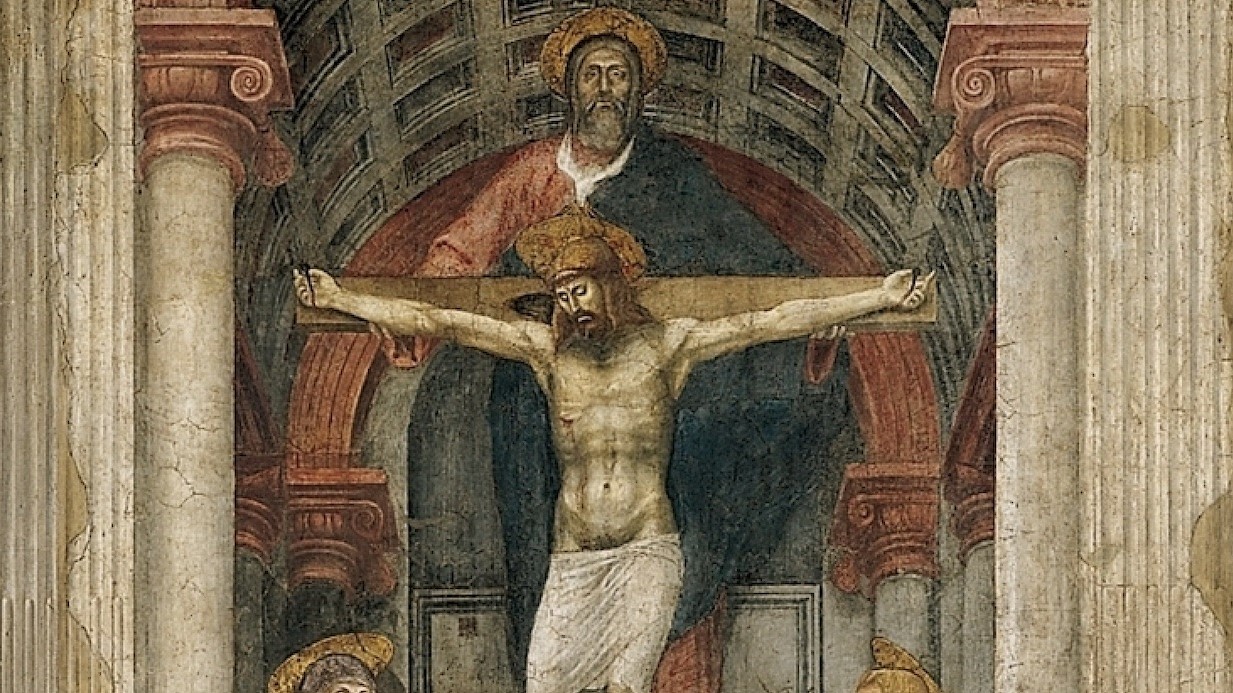Considering Jesus, Our Passover Lamb

by Pastor Gene
Our blogs usually focus upon issues of practical discipleship: ‘How can I more effectively follow Jesus?’ But, as we approach Holy Week – Palm Sunday is just days away – I’d like us to turn our eyes solely and deliberately upon Jesus, our suffering Savior.
I LOVE the exhortation of Hebrews 3:1! “Therefore, holy brothers, you who share in a heavenly calling, consider Jesus, the apostle and high priest of our confession.” Look at the words the writer uses here! “Consider Jesus!” Think carefully about Him, contemplate Him, reflect upon Him! And who should do this? “[Those] who share in a heavenly calling!”
So, let’s do that. Let’s consider Him through a couple of extended quotations I find to be particularly insightful.
There are no questions attached to the end of the blog this week. Rather, I’d ask you to pause and reflect upon each point raised in the readings. What do they reveal to you about our Lord Jesus?
Some time Ago, Max Lucado published God Came Near (Thomas Nelson, 2004), a beautiful book that tries to comprehend Jesus’ life from the standpoint of His humanity. The abstract asks, “Have you seen the real Jesus – a working man with dirty fingernails and sweaty brow? The helpless baby, born in a dirty stable, and totally dependent upon his teenaged mother?”
These are interesting questions to think about because Jesus did walk the same kinds of dusty roads that we do. He sweat beneath the same blazing sun as we do.
One of its chapters the called, ‘Twenty-Five Questions for Mary.’ I won’t quote them all here, but some of them are very interesting indeed. Consider how Jesus’ mother might have answered these questions …
“What was it like watching him pray?”
“How did he respond when he saw other kids giggling during the service at the synagogue?”
“When he saw a rainbow, did he ever mention a flood?”
“Did the thought ever occur to you that the God to whom you were praying was asleep under your own roof?”
“What do you think he thought when he saw a prostitute offering to the highest bidder the body he made?”
“Did you ever catch him pensively looking at the flesh on his own arm while holding a clod of dirt?”
“Did he ever wake up afraid?”
“When someone referred to Satan, how did he act?”
“What did he and his cousin John talk about as kids?”
“Did you ever feel awkward teaching him how he created the world?”
“Did you ever see him with a distant look on his face as if he were listening to someone you couldn’t hear?”
“When he saw a lamb being led to the slaughter, did he act differently?”
O, the wonder of this Child – the Word made flesh, very God become man and come to earth!
On a bit of a different track, Dr. Lewis Sperry Chafer, the first president of Dallas Theological Seminary, also grappled with the wonder that is the Person of Christ:
“In attempting to write on His adorable Person and His incomprehensible achievements . . . the limitations of a finite mind, which is weakened by a faulty perception, are all too apparent.
Of this incomparable One it is said that “in the beginning was the Word, and the Word was with God, and the Word was God. The same was in the beginning with God”; [the] One, who . . . occupied the highest place of Deity in company with the Father and the Spirit, “was made flesh, and dwelt among us.”
He who is from everlasting to everlasting was born of a woman and died on a cross.
He who according to the mind of the Spirit is Wonderful, was spit upon by men.
He who, by the same mind, is Counselor is rejected of men.
He who is the mighty God is crucified in abject weakness.
He who is the everlasting Father, is a Son who learned obedience by the things which He suffered.
He who is The Prince of Peace must Himself tread the winepress of the fierceness and wrath of Almighty God, for the “day of vengeance” must yet be in His heart and He must yet break the nations with a rod of iron and dash them in pieces as a potter’s vessel.
He who said, “I am among you as he that serves,” also said, “Think not that I [have] come to send peace on earth: I came not to send peace, but a sword.”
He who is the chaste, wooing Lover of the [Song of Solomon] is the King of glory who is mighty in battle.
He who created all things occupied an infant’s cradle.
He who is holy, harmless, undefiled, and separate from sinners was made to be sin in behalf of others.
He who was the Bread of Life was Himself hungry.
He who was the giver of the supernatural Water of Life was Himself thirsty.
He who was God’s Gift of Life to a lost world was Himself dead.
He who was dead is alive forevermore.
The range of the life and influence of the Lord Jesus Christ, as disclosed in the Sacred Text, is such as to comprehend things infinite and finite, of God and of man, of the Creator and the creature, of things in heaven and things on the earth, of eternity and of time, of life and of death, of . . . celestial glory and of mundane sufferings and sacrifice.
No greater spread of realities can be conceived than is done when [declaring] of one Person that He is both very God and very man. [We might ask] how God could be born in a human fashion and die, how God could grow in wisdom and stature, how God could be tempted, how God could be made subject to law, how God could be in need of prayer, how power could be given unto Him which was not His before, or how He could be exalted beyond what He was before.
[We might also ask] how a visible, identified man on the earth could heal all manner of diseases by His own authority, how He could still the waves with a word of command, how He could discern the thoughts of all men, how He could finally and authoritatively forgive sin, how He could be in complete dominion over angelic spheres, how He could be associated with the Father and the Spirit in majestic ascriptions of heavenly glory, how He could be linked with the titles, the attributes, and the worship belonging [only] to Deity.
The answer is found in the revealed truth that this One, as no other could ever be, is both God and man, yet one adorable Person. None need be surprised that this [One] is different and . . . is incomprehensible to finite minds.
Were He only man, even the greatest of men, His fellow men might apprehend Him, but He is, first of all, the God of all eternity; and because of that aspect of His incomparable Person, the finite mind may never plumb the immeasurable depths or scale the limitless heights of His Being” (Chafer, Lewis Sperry, Systematic Theology, Volume 5, Grand Rapids, MI: Kregel Publications, 1993, pp. 1-4).
So, what should we do with such wonderful things? Michael D. Inman suggests a few:
We should meditate on His perfection, His loveliness.
We should sing of His loving kindness.
We should shout of His ability to save all who call upon Him.
We should savor His never-failing promises.
We should revel in the anticipation of seeing Him and spending eternity in His presence.
And we should hear His gentle voice whispering, “If you love me, obey me.”
Jesus said: “If anyone loves me, he will keep my word, and my Father will love him”, and “He who loves me will be loved by my Father, and I will love him and manifest myself to him” (John 14:23, 21).
Either way, we can count on this, if we’ll seriously “consider Jesus,” we’ll surely find that He is “altogether lovely”!
Recommended Posts
Comments
Comments are closed.




I NO THA T JESUS DIED FOR MY SINS ANDOTHERS HE WENT THREW ALOT FOR US HE SUFFERED FOR US I NO THAT I LOVE JESUS HE HAS SAVEDME FROM GETING HURT FROM PEOPLE THAT HIT ME WITH THERE CARS I DO NOT WHA TI WOULD TO I FI DID NOT HAVE JESUS IN MY LIFE ONE DAY I WILL BE IN HEAVEN WITH JESUS AND SEE MY 2 CHILDREN I LOVE JESUS WE NEEDTO REMBER WHAT HE DID FOR US